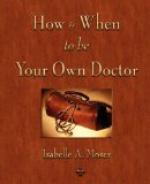And this is as good a point as any to mention that just like broccoli is not broccoli, a vitamin is not necessarily a vitamin. Vitamins are made by chemical and pharmaceutical companies. To make this confusion even more interesting, the business names that appear on vitamin bottles are not the real manufacturers. Bronson’s Pharmaceuticals is a distributor and marketer, not a manufacturer. The same is true of every vitamin company I know of. These companies buy bulk product by the barrel or sack; then encapsulate, blend and roll pills, bottle and label, advertise and make profit. The point of all this is that some actual vitamin manufacturers produce very high quality products and others shortcut. Vitamin distributors must make ethical (or unethical) choices about their suppliers.
It is beyond the scope of this book to be a manual for going into the vitamin business. However, there are big differences in how effective vitamins with the same chemical name are and the differences hinge on who actually brewed them up.
For example, there are at least two quality levels of vitamin C on the market right now. The pharmaceutical grade is made by Roche or BASF. Another form, it could be called “the bargain barrel brew,” is made in China. Top quality vitamin C is quite a bit more costly; as I write this, the price differential is about 40 percent between the cheap stuff and the best. This can make a big difference in bottle price and profit. Most of the discount retail vitamin companies use the Chinese product.
There’s more than a price difference. The vitamin C from China contains measurable levels of lead, cadmium, mercury, iron and other toxic metals. The FDA allows this slightly contaminated product to be sold in the US because the Recommended Daily Allowance for vitamin C is a mere 60 milligrams per day. Taken at that level, the toxic metals would, as the FDA sees it, do no harm. However, many users of vitamin C take 100—200 times the RDA. The cheap form of C would expose them to potentially toxic levels of heavy metal poisons. The highly refined top-quality product removes impurities to a virtually undetectable level.
I buy my C from Bronson who ethically gives me the quality stuff. I know for a fact that the vitamin C sold by Prolongevity is also top quality. I’ve had clients who bought cheaper C than Bronson’s and discovered it was not quite like Bronson’s in appearance or taste. More importantly, it did not seem to have the same therapeutic effect.
The distributors I’ve mentioned so far, Bronson, NOW, Cooper, Prolongevity and Vitamin Research Products are all knowledgeable about differences between actual manufacturers and are ethical, buying and reselling only high quality products. Other distributors I believe to be reputable include Twin Labs, Schiff and Plus. I know there are many other distributors with high ethic levels but I can not evaluate all their product lines. And as I’ve mentioned earlier, businesses come and go rather quickly, but I hope my book will be read for decades. I do know that I would be very reluctant to buy my vitamins at a discount department store or supermarket; when experimenting with new suppliers I have at times been severely disappointed.




